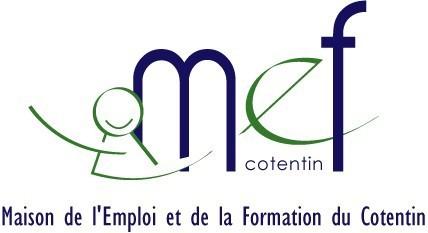
MEF du Cotentin
1 rue d Anjou
50130 Cherbourg-Octeville
France
Activité détaillée
L’association est née à l’initiative de la Communauté Urbaine de Cherbourg et des Districts de la Hague et des Pieux, en lien avec l’Etat. La volonté des élus d’offrir un service de proximité aux personnes les plus fragilisées a conduit à une implantation dans le quartier des Provinces d’Octeville.
Elle a pour objectifs, sur le territoire du Pays du Cotentin : de regrouper sous une même entité juridique et d’animer des dispositifs territoriaux liés à l’emploi afin d’améliorer leur accessibilité et leur cohérence : Mission Locale du Cotentin, Plan Local pour l’Insertion et l’Emploi (PLIE) du Cotentin, Mission d’Information sur la Formation et l’Emploi, Balise création d’entreprises, Centre de Bilans de Compétences de mobiliser les collectivités territoriales, le service public de l’emploi, les acteurs économiques et les partenaires sociaux pour élaborer et conduire un plan d’actions pluriannuel concerté en faveur du développement territorial, de l’emploi et de la formation.
Initié conjointement en 2008 par l’ADEME et Alliance Villes Emploi et porté par le Ministère de l’Ecologie, du Développement durable (DD) et de l’Energie, le projet dénommé « Maison de l’Emploi et DD » concerne près de 50 Maisons de l’Emploi chargées de travailler sur des thématiques associées à l’économie verte : déchets, transport, bâtiment....
Ce projet vise à accompagner l’adaptation des métiers et des compétences impactés par les choix et orientations du Grenelle de l'Environnement.
Outre le secteur du Bâtiment, le pôle de Gestion Prévisionnelle de l’Emploi et des Compétences Territoriales (GPECT) de la MEF du Cotentin aborde la thématique « Croissance bleue » sous l’angle des énergies marines renouvelables (EMR), des ports, des déchets, de l’écoconception et du démantèlement des navires.
La MEF du Cotentin est également "cité des métiers", traite des questions de mobilité et de diversité. Elle est partenaire du projet Interreg BEEMS qui porte sur la thématique RH dans les EMR au niveau du bassin de la Manche.
www.marinerenewableskills-beems.eu
MAISON DE L’EMPLOI ET DE LA FORMATION DU COTENTIN
What is this ?
The maison de l’emploi brings together various actors in the labour market: public employment services, the adult learning agency, the “missions locales” promoting social and employment activation for young people, local development agencies, and local actors working on the ground. Each “maison” is an ‘organisation with a variable geometry’, meaning that in addition to the central partners (the state, the public employment services and a local body or consortium), any number of organisations are partners including the regions, federations of employers or professionals and service providers.
The maison de l’emploi do not replace existing service providers as jobcenters; their role is rather to facilitate access to the range of services for jobseekers and for the various bodies and organisations involved in local economic development, employment, training and professional integration.
Therefore, the MEF du Cotentin forms a kind of network and is a single access point for the different aspects of local employment.
We have various roles:
- we make a strategic analysis of the local labour market and adapt services to this
- we support and drive forward the network of local actors and provide local access to a range of services for which a personalised action plan is developed with clients
- we work with local employers recruiting staff and we support business start-ups and SMEs.
- we develop forward-looking management of jobs and skills to improve effectiveness of economic development, specifically green sector (we design a range of actions that are specially aimed at addressing the needs of companies).
Focus on the Integration through economic activity
The existing link between economic development, employment and integration is of vital importance: it enables social and territorial cohesion while responding to objectives in terms of competitiveness and the attractiveness of the local area.
The French government has been implementing policies that encourage integration through economic activity, in order to improve access to jobs for those sections of the population that are currently distanced from employment.
Article 14 of the 2001 French Public Contracts Code allows the use of public-sector contracts to encourage the professional integration of people hitherto distanced from employment by incorporating an integration clause in invitations to tender.
Efforts are currently being made to ensure the widespread application of the clause d’exécution sociale (social performance clause) to all of the Urban Community's public contracts.
We are also responsible of the application of this “social performance clause”.
Activité






